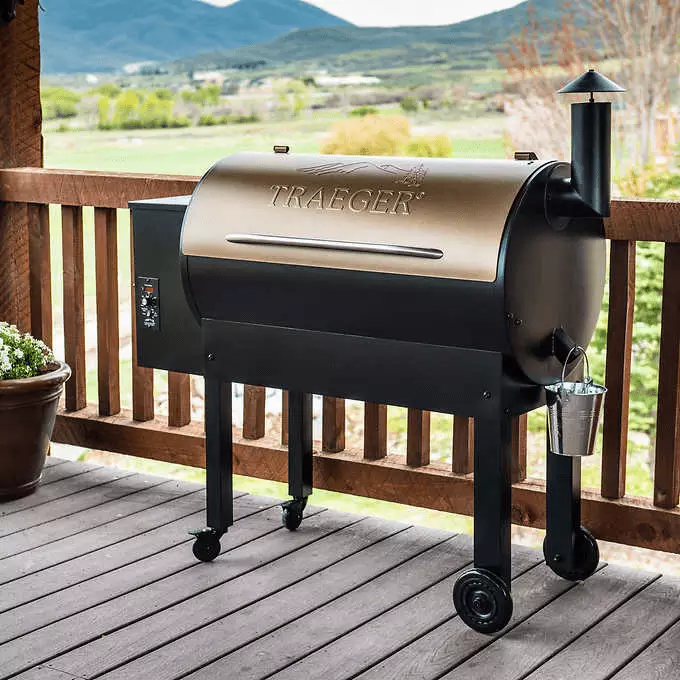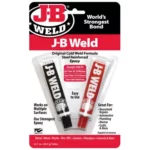Grilling is a timeless activity that brings about a unique flavor, often linked with outdoor fun and gatherings. A significant player in the grilling space is Traeger, a brand known for its wood pellet grills offering a distinct, smoky flavor. This article discusses a pertinent question – the usage of Traeger grills in apartment settings.
There is no straightforward answer to this question. The allowance of Traeger grills in apartments hinges upon multiple factors including the apartment’s rules and regulations, local fire codes, and the specific model of the grill. In essence, it’s a balance between safety concerns and a resident’s desire to enjoy grilled meals.
To reach a conclusion on this topic, it’s necessary to delve into the specifics of Traeger grills, apartment regulations, and alternatives available for apartment dwellers who want to enjoy grilling.
What are Traeger Grills?
Brief description about Traeger Grills
Traeger Grills are a type of outdoor cooking appliance known for their distinctive wood-fired cooking method. They use wood pellets as fuel, offering a unique, smoky flavor to the food that is difficult to achieve with traditional gas or charcoal grills.
How do Traeger Grills work?
The operating process of a Traeger grill is relatively straightforward. The wood pellets are loaded into a hopper, which feeds the pellets into a fire pot underneath the grill. An electric hot rod ignites the pellets, creating a fire that heats the grill and produces smoke for cooking and flavoring the food.
Why People Love Traeger Grills?
Traeger Grills have carved out a unique niche in the grilling market. These wood pellet grills have become increasingly popular for several reasons.
Unique features of Traeger Grills
People are often drawn to Traeger Grills for their unique features, which differentiate them from traditional grills. Here’s a detailed look at some of these distinctive traits:
- Versatility: Traeger Grills are renowned for their versatility. They serve multiple functions including grilling, baking, roasting, smoking, and barbecuing. With a Traeger grill, you essentially get multiple cooking appliances in one unit.
- Precision Temperature Control: These grills come with precision temperature control, allowing users to maintain accurate cooking temperatures throughout the grilling process. This results in more evenly cooked food and eliminates the risk of over or under-cooking.
- Flavor Profile: One of the major draws of Traeger Grills is the distinct flavor they impart to the food. Since these grills use wood pellets for fuel, they provide a smoky flavor that’s hard to replicate with other grills.
- Ease of Use: Despite their advanced features, Traeger Grills are known for their user-friendliness. The digital controls make it easy to set the temperature and cooking time, allowing even novice grillers to use the grill with ease.
Quality of food cooked on Traeger Grills
Beyond the unique features of the grill itself, the quality of food cooked on Traeger Grills is another key factor in their popularity.
- Taste and Texture: Food cooked on a Traeger grill often has a superior taste and texture compared to food cooked on conventional grills. The consistent heat and wood-fired cooking process results in juicy, tender meat with a unique smoky flavor.
- Healthier Cooking: Traeger Grills are also appreciated for promoting healthier cooking. The fat from the food drips into a bucket, ensuring that the food isn’t cooked in its own fat. This, coupled with the use of natural wood pellets, promotes healthier grilling.
Apartment Rules and Regulations
Before you decide to invest in a Traeger Grill for your apartment, it’s essential to understand the rules and regulations related to grill usage in apartment settings.
General rules about grills in apartments
Every apartment complex has its own set of rules and regulations that residents are required to follow. When it comes to grills, these rules can vary widely based on various factors:
- Prohibition: Some apartments completely prohibit the use of grills, mainly due to safety concerns. This is especially common in high-rise apartments where there is a higher risk of fire spread.
- Restrictions: Other apartments may allow grills but impose certain restrictions on their usage. These restrictions can relate to the type of grill, the time and place of usage, and the procedures to follow while grilling.
Factors influencing these regulations
Several factors can influence these rules and regulations. Here are a few to consider:
- Building Design: The design and layout of the building can dictate the rules regarding grill usage. Buildings with larger balconies or dedicated outdoor spaces are more likely to allow grills.
- Location: The location of the apartment can also influence the rules. Apartments in densely populated areas or areas with high fire risk may have stricter rules.
- Local Laws and Fire Codes: Local fire codes and laws also play a crucial role in determining these regulations. Apartments are typically required to adhere to these codes, which can often be quite strict when it comes to grills.
Before purchasing a Traeger Grill or any grill for your apartment, make sure to check your apartment’s rules and regulations, as well as local fire codes.
Factors to Consider Before Using Traeger Grills in Apartments
If you’re considering using a Traeger Grill in your apartment, there are several factors to keep in mind:
Grill size and balcony/patio space
The size of the grill and the available space in your apartment are important considerations. Here’s why:
- Space: Apartments, particularly those in urban areas, can be quite compact with limited outdoor space. If your balcony or patio is small, a large grill may not be suitable.
- Placement: The grill should be placed in a safe location. It should not obstruct the passage or be too close to flammable items. This may require a larger space than what is available.
- Storage: Additionally, you’ll need to consider where you’ll store the grill when it’s not in use. A large grill might be difficult to store in a small apartment.
Noise and smoke output
While Traeger Grills are not particularly loud, they can produce noise and a significant amount of smoke, both of which might be disruptive in an apartment setting.
- Smoke: Smoke can be a nuisance to your neighbors, particularly if their windows are close to your grilling area. It can also set off smoke detectors, which can be a major inconvenience.
- Noise: While the noise from a Traeger Grill isn’t significant, it can still be disruptive in a quiet apartment complex, especially if you’re grilling early in the morning or late at night.
Safety concerns and measures
Safety should be the top priority when using any grill in an apartment setting. The grill should be placed away from flammable materials, and a fire extinguisher should be readily accessible.
Traeger Grills and Fire Regulations
Fire safety regulations pertaining to grills
Most cities have fire safety regulations that prohibit the use of open-flame cooking devices in multi-family residential buildings. This usually includes grills used on balconies, patios, and within a certain distance of combustible construction.
How Traeger Grills fare against these regulations
Because Traeger grills use wood pellets and produce a significant amount of smoke, they might be considered open-flame cooking devices. Thus, they may not be allowed under these fire regulations. However, the final decision often rests with the local fire department or building management.
Alternatives to Traeger Grills for Apartment Dwellers
Other suitable grill options for apartments
For those who can’t use Traeger grills in their apartments, other options might be suitable. Electric grills, for example, usually comply with apartment rules and fire regulations. They don’t produce smoke or open flames, making them a safe option for apartment dwellers.
Pros and cons comparison with Traeger Grills
While electric grills are safe and convenient, they don’t provide the same smoky flavor as Traeger grills. This trade-off is worth considering when deciding on the best grill for apartment living.
Legal Ramifications of Grill Usage in Apartments
Possible legal outcomes of violating apartment grill rules
Violating the rules set by your apartment management or local fire codes can lead to serious consequences. This might include fines, eviction, or liability for any damage caused by misuse of the grill.
Steps to take if facing legal issues
If you face legal issues due to grill usage, it’s advisable to consult with a lawyer. They can provide guidance on your rights and responsibilities, and help you navigate the legal process.
Tips for Responsible Grill Usage in Apartments
Even if grills are allowed in your apartment, it’s important to use them responsibly. Ensure the grill is stable and secure, maintain a safe distance from combustible materials, and never leave the grill unattended while in use. Additionally, be considerate of your neighbors by minimizing noise and smoke.
Frequently Asked Questions
Can I use a Traeger grill on my apartment balcony?
Whether you can use a Traeger grill on your apartment balcony depends on your building’s rules and regulations, as well as local fire codes. It’s best to check with your building management and local fire department before purchasing a grill.
What alternatives are there to Traeger grills for apartment dwellers?
If Traeger grills aren’t allowed in your apartment, electric grills are a viable alternative. They are typically safe for apartment use because they don’t produce smoke or open flames. However, they may not provide the same smoky flavor associated with Traeger grills.
What should I do if I violate my apartment’s grill rules?
If you violate your apartment’s grill rules, you should immediately cease the grill usage. Depending on the severity of the violation, you might face penalties such as fines or even eviction. If you face legal consequences, it’s advisable to consult with a lawyer.
Conclusion
The question of whether Traeger grills are allowed in apartments isn’t straightforward. It involves considerations of apartment rules, fire regulations, and the specific features of Traeger grills. While these grills offer a distinctive cooking experience, safety and legal compliance are of utmost importance in a residential setting.
For apartment dwellers who cannot use Traeger grills, alternatives like electric grills offer a way to enjoy grilling while adhering to safety regulations. However, these alternatives may not completely replicate the flavor and experience provided by Traeger grills.
Ultimately, while the desire to enjoy a well-grilled meal is understandable, it should never come at the cost of safety or legality. Ensuring that your







